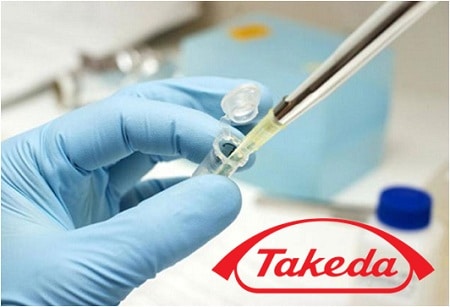Teva Pharmaceutical Industries Ltd. announced that the U.S. FDA has approved AUSTEDO™ (deutetrabenazine) tablets for the treatment of chorea associated with Huntington’s disease (HD). Previously referred to by the developmental name SD-809, AUSTEDOTM is the first deuterated product approved by the FDA and only the second product approved in HD.
The product was previously granted Orphan Drug Designation by the FDA.A rare and fatal neurodegenerative disorder, HD affects more than 35,000 people in the United States. Chorea – involuntary, random and sudden, twisting and/or writhing movements – is one of the most striking physical manifestations of this disease and occurs in approximately 90% of patients. “Chorea is a major symptom for many living with Huntington disease.
It impacts patients’ functionality and activities of daily living, and there have been limited treatment options for these patients,” said Michael Hayden, M.D., Ph.D., President of Global R&D and Chief Scientific Officer at Teva. “Based on the results demonstrated in the clinical development program which supported the approval of AUSTEDO™ and our ongoing commitment to patients, we feel uniquely positioned to bring this treatment option forward.”
The FDA approval was based on results from a Phase III randomized, placebo-controlled study to assess the safety and efficacy of AUSTEDO™ in reducing chorea in patients with HD (First-HD).
“At Teva, we have a long history of establishing comprehensive disease management programs in chronic disease areas. We have highly skilled teams experienced in building relationships with patients, their care partners and healthcare professionals,” said Rob Koremans, MD, President and CEO of Global Specialty Medicines at Teva. “Bringing a new treatment forward where the unmet need is so significant is an inspiring opportunity. Our commercial and medical organizations are well prepared to make this important treatment available to the HD community.”
“Chorea associated with Huntington’s disease has a significant impact on those living with the disease and their families,” said Louise Vetter, Chief Executive Officer of the Huntington’s Disease Society of America. “The FDA’s approval of AUSTEDO™ represents an important new treatment option for people with HD and highlights the need for more therapeutic resources for this underserved patient community.”
Teva’s Shared Solutions® is a free service to provide support to patients starting or taking AUSTEDOTM at 1-800-887-8100. Resources include nursing support, disease education, and financial assistance programs. AUSTEDOTM is expected to be available in the U.S. within the next 3 weeks.
About AUSTEDOTM
AUSTEDOTM is indicated for the treatment of chorea associated with Huntington’s disease.The efficacy of AUSTEDOTM as a treatment for chorea associated with Huntington’s disease was established in a randomized, double-blind, placebo-controlled,
multi-center trial conducted in 90 ambulatory patients with manifest chorea associated with Huntington’s disease. Total Maximal Chorea Scores for patients receiving AUSTEDOTM improved by approximately 4.4 units from baseline to the maintenance period (average of Week 9 and Week 12), compared to approximately 1.9 units in the placebo group. The treatment effect of -2.5 units was statistically significant (p<0.0001). The Maintenance Endpoint is the mean of
the Total Maximal Chorea Scores for the Week 9 and Week 12 visits. At the Week 13 follow-up visit (1 week after discontinuation of the study medication), the Total Maximal Chorea Scores of patients who had received AUSTEDOTM returned to baseline.
AUSTEDOTM.
Tetrabenazine causes an increase in the corrected QT (QTc) interval. A clinically relevant QT prolongation may occur in some patients treated with AUSTEDOTM who are CYP2D6 poor metabolizers or are co-administered a strong CYP2D6 inhibitor. Tetrabenazine elevates serum prolactin concentrations in humans.Since deutetrabenazine or its metabolites bind to melanin-containing tissues, it could accumulate in these tissues over time. The most common adverse reactions (>8% of AUSTEDOTM-treated patients and greater than placebo) in a controlled clinical study were: somnolence, diarrhea, dry mouth, and fatigue.
Center for Teva Specialty Medicines at 888-4-TEVA-RX (888-483-8279) and USMedInfo@tevapharm.com or Teva’s Public Relations or Investor Relations contacts.
About Teva
Teva Pharmaceutical Industries Ltd. (NYSE and TASE: TEVA) is a leading global pharmaceutical company that delivers high-quality, patient-centric healthcare solutions used by approximately 200 million patients in 100 markets every day. Headquartered in Israel, Teva is the world’s largest generic medicines producer, leveraging its portfolio of more than 1,800 molecules to produce a wide range of generic products in nearly every therapeutic area. In specialty medicines, Teva
has the world-leading innovative treatment for multiple sclerosis as well as late-stage development programs for other disorders of the central nervous system, including movement disorders, migraine, pain and neurodegenerative conditions, as well as a broad portfolio of respiratory products. Teva is leveraging its generics and specialty capabilities in order to seek new ways of addressing unmet patient needs by combining drug development with devices, services and technologies. Teva’s net revenues in 2016 were $21.9 billion. For more information, visit www.tevapharm.com.
IR Contacts:
Kevin C. Mannix
United States
(215) 591-8912
or
Ran Meir
United States
(215) 591-3033
or
Tomer Amitai
Israel
972 (3) 926-7656
or
PR Contacts:
Iris Beck Codner
Israel
972 (3) 926-7687
or
Denise Bradley
United States
(215) 591-8974
or
Nancy Leone
United States
(215) 284-0213



















